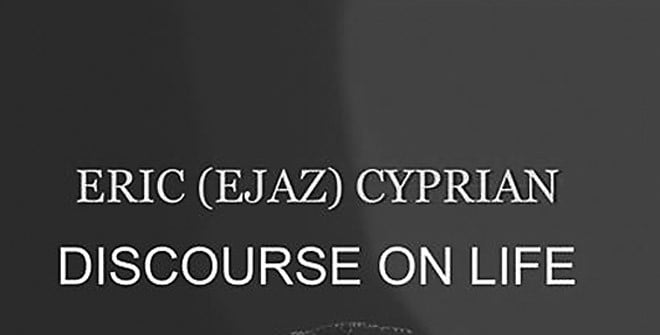

Eric Cyprian took to writing consistently only in the later part of his life and that too penning pieces in the various newspapers from Islamabad.
He was an exceptional speaker and such was the genius he had for the spoken word that whenever he wanted to write, it ended up in an adverse comparison with his speeches or lectures.
One of the best speakers in English that I had heard or seen all these years, he was brilliant when it came to his taking the rostrum or the speaker’s podium. Of course in class he was exceptional, speaking at ease about the various subjects in hand, which was usually fiction and then comparing it with fiction all round the world in various languages and literatures.
His knowledge about the classical Greek literature was profound and this often provided the backdrop to his analytical reading of English literature as it developed from the middle English to modern times.
It must be said that unlike most professors and teachers who have a definitive take on the life or have an ideological bent he was not at all dogmatic. He treated literature initially as literature and not a handmaiden of some ideology or a reflection of a certain point of view. This point is very critical because, in most cases, the work of literature or even a piece of music or a painting is treated as a cover-up for something else, a point of view of an understanding that develops elsewhere -in particular politics or religion. He treated literature foremost, and it seemed and quite rightly so that his understanding of life and politics had basically grown out of his understanding of the arts.
Despite English being his first language he was fully in synch with the local literature, and mind you it was not only in Urdu that he was proficient but also in Punjabi. He was comfortable in quoting its particularities and how its sensibility was different not only from English but also from Urdu.
He therefore had a certain sensitivity that went beyond that of a political or a political worker and that also instilled in him a certain benign quality, a softness that may not be a best virtue for a politician. Though he was associated in active politics all his life, especially in his early and salad years being the secretary general of the Communist Party, based on his experience of having worked for the Communist Party of Great Britain, a sensitivity nurtured on the arts was a quality good for a professor and bad for active politics and this did not let him progress much in pure political sense.
He treated English classics from the Elizabethan times to the twentieth century he treated with the same tenderness and warmth and encompassed than in their entirety, thus he was not looking at pieces or works of arts in segments or just a slice of something but as a response to a genuine human dilemma or problem. He did not apply a political solution to it, but had an artistic recipe for something that evoked an artistic response in the first place.
This rounded approach and his exceptional ease, ability and volubility before an audience, whether of students, intellectuals or the elite in their respective fields always ended up in a brilliant performance.
He was always the first not only in class but at various forums in the city that choice of the organisers. He was often the presiding personality in literary and political gatherings and people came to the meeting just to hear him speak. He cast a mesmerising spell on the listeners and fully carried them with him. It was later, only later, when the spell wore off that one sharpened the razors of analytical understanding and surgical analysis.
Because of his great superiority as a speaker his ability as a writer was never appreciated or eulogised, actually discouraged because people wanted him only to speak. He himself often mentioned this impediment of what people expected of him. Instead of reading what he had written they wanted him to come and speak to them casting the familiar spell. All else was forgiven but in retrospect when the man is not around his writings survive.
His deeds outlive his life and Eric Cyprian as an educationist, professor of English, as a founder member of Shah Hussain College will be more fondly remembered by those who had the privilege of being in his company, as contemporaries, junior colleagues and students. The warmth of the spoken word and the loving caress with which he uttered those can never be replicated or recreated in the written form. The written word is dead and needed the Cyprian kiss of life to bring it back to life.
In that aspect Discourse of Life, a collection of his newspaper writings, that has recently been published does not justice to the man.
Having spent almost his entire life in Lahore, the last twenty years or so he spent in Islamabad. He was a regular at the cultural events and was much sought after by the young. His encyclopaedic sweep of the affairs of art and life were a source of inspiration for the youth and envy to the old.
His bohemian lifestyle was looked up by those who wanted to break the shackles of respectable but hollow existence. His house off Ferozepur Road was a haunt of many who lived in the hope of emulating his lifestyle. The fondest memories are of his years in Lahore and once he moved out another phase of his life started. Though late, he engaged in it too with the burning commitment of the young.